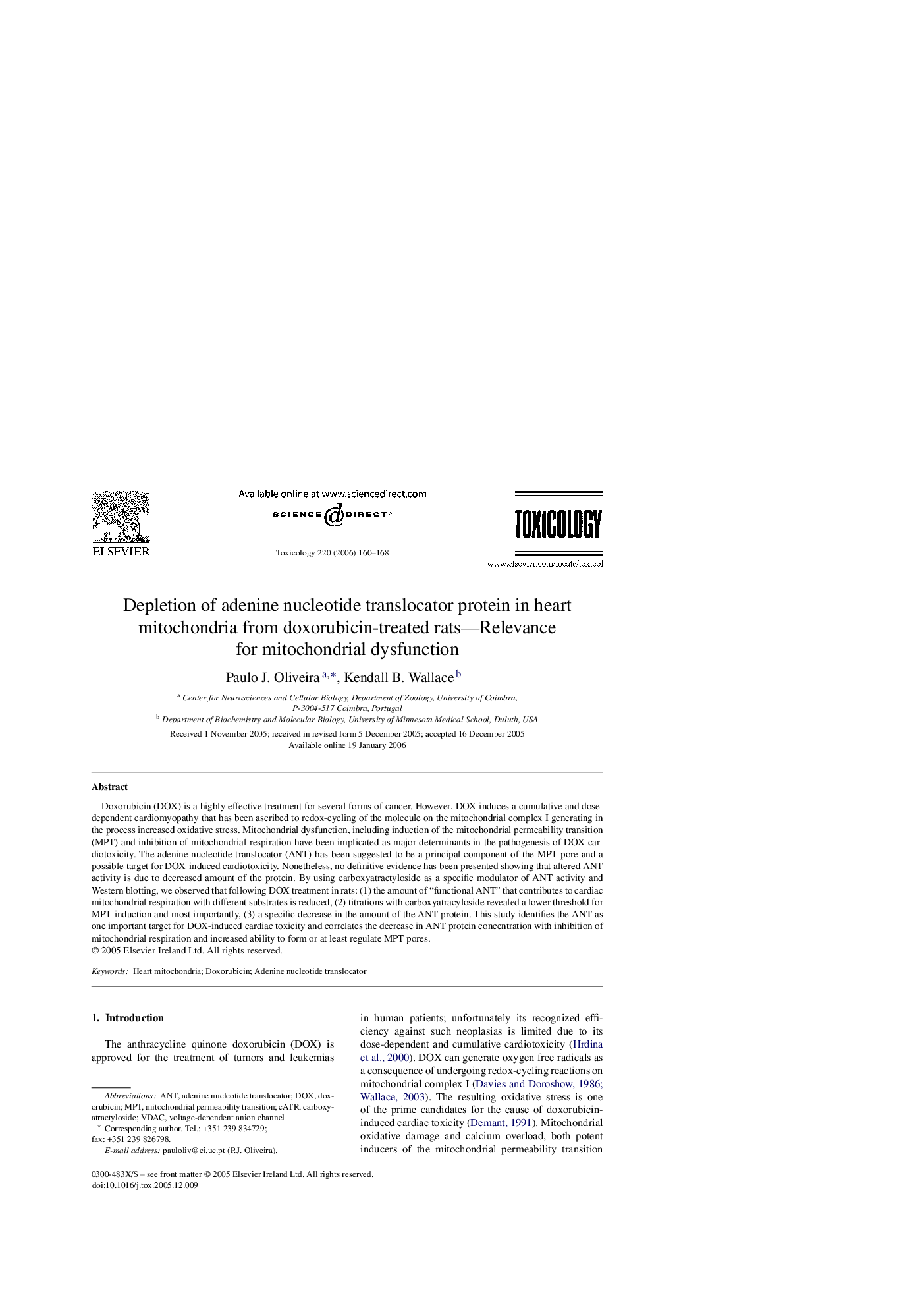| Article ID | Journal | Published Year | Pages | File Type |
|---|---|---|---|---|
| 2598194 | Toxicology | 2006 | 9 Pages |
Doxorubicin (DOX) is a highly effective treatment for several forms of cancer. However, DOX induces a cumulative and dose-dependent cardiomyopathy that has been ascribed to redox-cycling of the molecule on the mitochondrial complex I generating in the process increased oxidative stress. Mitochondrial dysfunction, including induction of the mitochondrial permeability transition (MPT) and inhibition of mitochondrial respiration have been implicated as major determinants in the pathogenesis of DOX cardiotoxicity. The adenine nucleotide translocator (ANT) has been suggested to be a principal component of the MPT pore and a possible target for DOX-induced cardiotoxicity. Nonetheless, no definitive evidence has been presented showing that altered ANT activity is due to decreased amount of the protein. By using carboxyatractyloside as a specific modulator of ANT activity and Western blotting, we observed that following DOX treatment in rats: (1) the amount of “functional ANT” that contributes to cardiac mitochondrial respiration with different substrates is reduced, (2) titrations with carboxyatracyloside revealed a lower threshold for MPT induction and most importantly, (3) a specific decrease in the amount of the ANT protein. This study identifies the ANT as one important target for DOX-induced cardiac toxicity and correlates the decrease in ANT protein concentration with inhibition of mitochondrial respiration and increased ability to form or at least regulate MPT pores.
